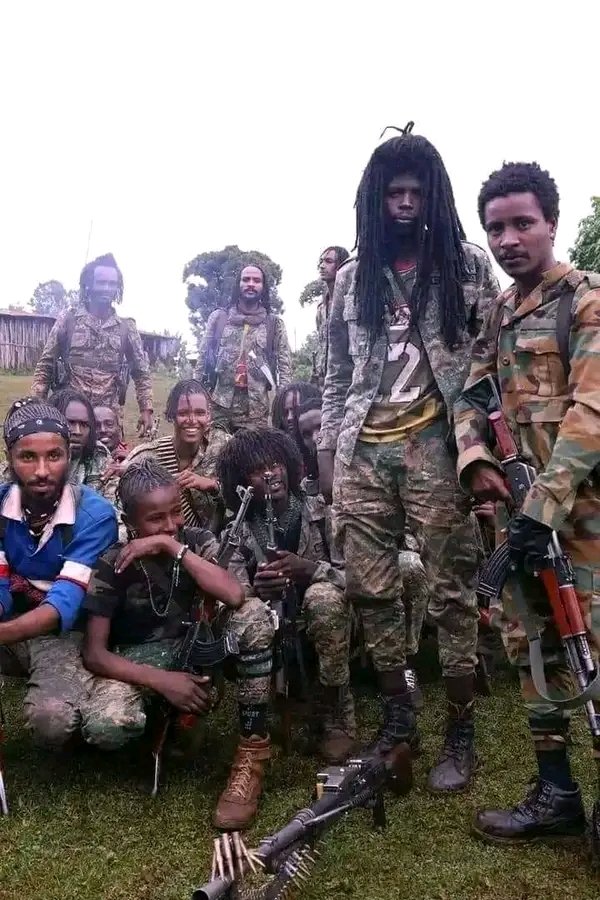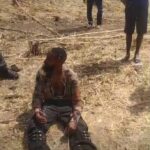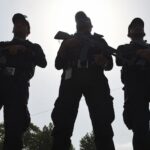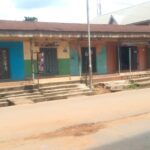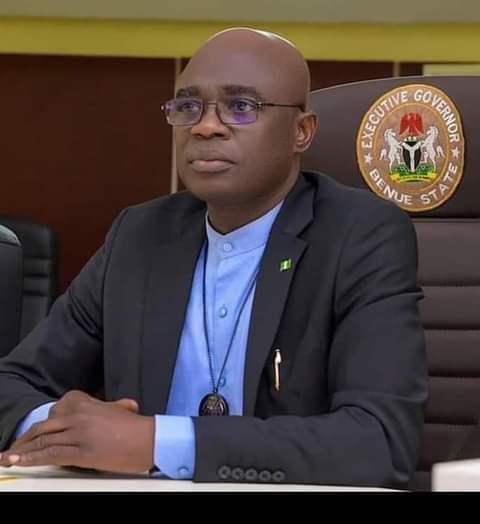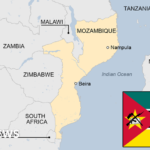The Nigerian army has spoken of attacks on the Niger-Nigeria border in 2024 as being carried out by a new terrorist group.
This sect is known as Lakurawa … The Lakurawa are affiliated to terrorists in the Sahel, particularly from Mali and Niger Republic.
News reports had the same message: that a new terrorist group was active on this border.
Nigeria's north-west has a long history of armed banditry. Insecurity, poverty and hunger are at their most severe levels in this region.
The messages being conveyed by the Nigerian army were that the group had emerged as a result of the turmoil following recent coups in the Sahel region.
Niger (July 2023), Mali (August 2020 and May 2021), Guinea (September 2021) and Burkina Faso (January and September 2022) are countries in the Sahel currently ruled by military juntas. Niger shares a border with Nigeria.
Relations between the Nigerian government and Niger are strained.
But it is surprising that the army is labelling this as a new terror group. It has in fact been operating in several communities along the Nigeria-Niger border since 1999.
This is according to research by Murtala Ahmed Rufa'i, an associate professor of peace and conflict studies at Usmanu Danfodiyo University Sokoto.
His book chapter is based on interviews in 2021 with traditional and religious leaders, teachers, vigilante group members, and members of various Islamic sects. He suggested that the Lakurawas were herders who from about 2016 transformed into a criminal group which operated in border communities, with headquarters in Sokoto state.
Rufa'i said the group was formed at the invitation of local traditional leaders seeking assistance in fighting armed bandits. He described Lakurawa as a unique group of terrorists, among the few in the world who are herders, who promote their own version of Islam and also seek to create a caliphate.
In one of our papers we've argued that the inability of Nigeria's government to provide security for its people has led to an increase in ungoverned spaces, which has bred groups like the Lakurawa.
In our view, the group's growing activities, and the army's assertion that this is a new development, highlight the fact that the region's ungoverned spaces are increasing. Making it seem like a newly discovered problem may be an effort by the army to avoid blame.
Who are the Lakurawas?
The Lakurawa group has been known for over 20 years. In his book chapter Rufa'i provides the following insights:
- The Lakurawa are armed herders who speak Arabic and Fulfulde. The predominant language in northern Nigeria and many parts of Niger is Hausa, whereas Fulfulde is primarily spoken by the Fulani people.
- Members of the group came from Mali to settle in border communities. They married local women, and recruited young people from these communities into jihadist activities.
- They promote an interpretation of Islam that deviates from mainstream sects such as Tijjaniya, Qadiriyya and Izala.
- They have attempted to implement sharia law in communities where they live.
Rufa'i says the group was initially recruited to fill the security void left by Nigerian state agencies between 2016-2017. Recruitment was arranged by the district head of Balle in Gudu Local Government and the district head of Gongono in Tangaza Local Government, with support from a former chairman of the Miyetti Allah Cattle Breeders Association of Nigeria.
The aim was to protect local communities against armed bandits from Zamfara State.
The Lakurawa were paid for their services and succeeded in dislodging the bandit threat between 2016 and 2017.
However, they soon began their own campaign of violence and imposed their own form of Islam. Consequently, their activities became a threat to the leaders who had invited them to form the armed group. This led to a fallout, culminating in the killing of the district head of Balle.
Since then, the Lakurawa have remained in the area, preaching, collecting taxes from the locals and engaging in other illicit activities.
The security vacuum
The porous nature of Nigeria's borders has been a big factor driving insecurity in these communities. This situation is worsened by the lack of a security presence in many of the affected areas.
Terrorist groups do not recognise borders or state authority. They often seek to create their own mini-states where they can govern, collect taxes, and enforce their own rules or religion.
Linking the Lakurawa's rise to recent coups in the Sahel might support the narrative of them being “new”. However, the insecurity across the Sahel has led to decades of military operations by the French and their allies.
Labelling the Lakurawa as a new group and attributing their emergence to coups does not lessen the harm done to the sovereign integrity of Nigeria and Niger. It also doesn't absolve the security agencies and leaders of these countries from their failure to fulfil a basic duty of a government: the protection of lives and property.
What's next for Nigeria's security strategy?
The Nigerian security forces, under Operation Fansan Yamma and Operation Farautar Mujiya, launched air and ground assaults on camps belonging to the terror group after Lakurawa attacked residents of Mera in Kebbi State, killing 15 people, on 9 November 2024.
But operations like this in the past have not stopped the violent conflicts between the nomadic herders and sedentary farmers nor the activities of Boko Haram and its affiliates in Nigeria. These security measures alone are unlikely to eliminate insecurity without empowering local communities and creating state police. In one of our papers, we suggested that police authority be devolved from the central government to the federating units to enhance the effectiveness and responsiveness of policing.
The reliance of communities on groups like the Lakurawa for protection made it possible for a band of armed herders in Mali to become a powerful terror group in Nigeria. This situation shows how security agencies in Nigeria have failed these communities. Also, it underscores the need to reconsider establishing state police in Nigeria.
Nigerian security agencies' reactive approach to insecurity must change. The lack of preventive intelligence operations to stop terror groups like the Lakurawa from infiltrating communities is also a major challenge.
In addition, Nigeria must increase its security cooperation with its neighbours to stop the armed groups operating in the Sahel.
